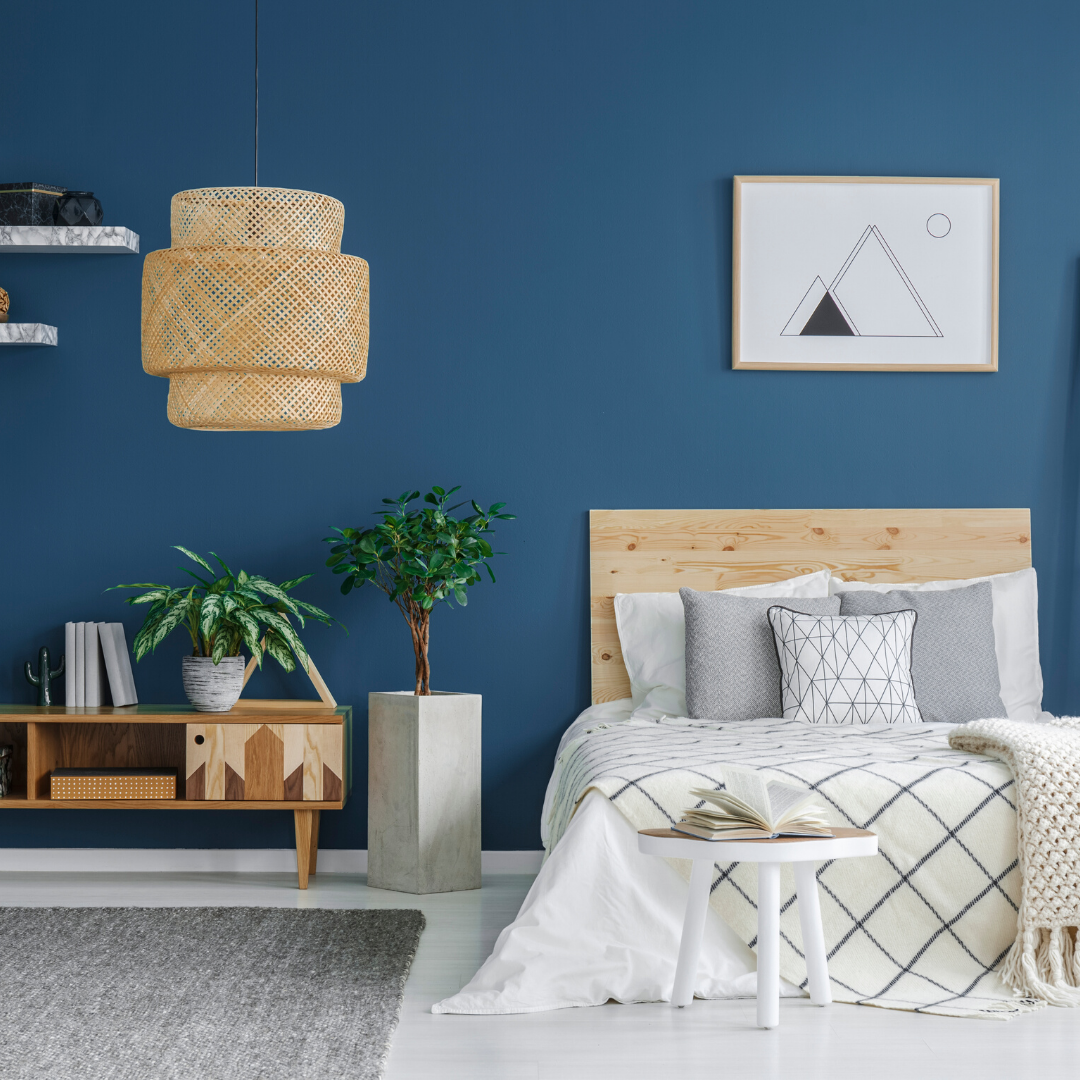
Property Taxes Just Went Up? We’ve Got You Covered!
It’s reassessment season for most folks in our area. Homeowners

What Makes a Room a Bedroom?
One of the most confusing issues in real estate is bedroom count. Now, it sounds silly, I know, but it’s true! Is this a two or three bedroom home? Can I count that room as a bedroom? What about the rooms in the basement? Are those bedrooms? Don’t you have to have a closet? How much do additional bedrooms add to my home’s market value? We field questions like these on a weekly basis, and in this blog post, we’ve attempted to answer most of them for you. So first up, let’s discuss what criteria we use to determine if a room can be counted as a bedroom.
What are the requirements for a room to be considered a bedroom?
There are just a couple of main things any room must have in order to be considered a bedroom. And here they are:
The following illustration is from the above-referenced website, and includes dimensions for a typical single hung or double hung window:
It’s worth noting that these size requirements for windows apply to all levels in a home, including the basement. Lots of older homes have very small windows in basement rooms that are not true egress windows. Even though a room may have a window, that window must meet the definition of egress to be considered a bedroom. What the ‘powers that be’ have in mind here, is the safety of the habitant. The reason windows must meet certain code is so that if needed, someone can escape through the window.
What isn’t required for a room to be a bedroom?
A closet!
Say what?! That’s right. A closet is not required. Much to the surprise of many of our readers, I’m sure! The International Residential Code doesn’t mention closets as a requirement for bedrooms. Keep in mind, however, that your state or local code may, in fact, have such a requirement. But most importantly (especially from an appraiser’s perspective) is the market. What is expected in your market by buyers? And, even in some markets, that expectation may change, depending on the style or age of the house. Some older homes don’t have closets at all – or have very few. I’ve done plenty of appraisals on older homes that if having a closet was a prerequisite for a bedroom, then the house wouldn’t have any bedrooms at all!
There’s a neighborhood in Owensboro (and I’m sure throughout the country, just the same) that has a particular style of 1.5 story or Cape Cod-style homes. The upper level has a bedroom on each end, usually with a bath, hallway, and staircase between the two bedrooms. And guess what’s not in the bedrooms? Closets. Because In the long hallway is a big closet with several doors (see sketch below). Do we count these rooms as bedrooms? You bet! Are buyers complaining that the room doesn’t have a closet? Nope! But would they complain if the long closet wasn’t in the hallway? Now that’s a maybe.
Again, remember your market. If you have a local code that requires closets in bedrooms, then a closet is needed. If buyers in your particular market demand a closet, then it’s needed. If all the buyers in your market want to see a built-in 120” TV and a minibar in each bedroom, then follow those rules!
What about basement bedrooms?
This is one of the most common questions we get, pertaining to bedrooms. “Can I count that room in the basement as a bedroom?” And, not surprisingly, the same rules apply to basements. That doesn’t mean that a room with no window can’t be used as a bedroom (on any level, even). I’ve seen lots of beds in places that would never qualify as bedrooms. No one can stop you from using the kitchen as a bedroom if that’s what you want! And, this is why some homeowners and Realtors will list a home as, for instance, a “3-4 bedroom” home. If you ever see the bedroom count listed as a range, 9 times out of 10, what the Realtor or homeowner is implying is that there’s another room that could be used as a bedroom, but may not meet all the criteria to be labeled as such.
Do extra bedrooms always increase market value?
This is where it all comes home. The $1M question. Or the $2,000 question. I recently read an article about bedrooms from a very well-known TV-personality who builds and remodels homes. I grew up watching this man on TV, and have a ton of respect for him. The article, however, stated that “The value of a home increases with bedroom number, so it is always in the best interest of the home seller to have as many rooms labeled ‘bedrooms’ as is possible.” I’m sorry to say that this could not be further from the truth and is part of the reason so many market participants want to label every room with a window a bedroom. They hand out bedroom labels like Oprah handing out cars! You’re a bedroom! And you’re a bedroom!
The truth is, at some point in each market, adding more bedrooms will not increase your home’s value. Maybe two bedrooms is enough where you live. Perhaps it’s five. But at some point, the more bedrooms you add, it won’t really matter. Just today, I had a friend ask me how much adding a fifth bedroom would increase their home’s market value. This is in a neighborhood where typically homes have no more than four bedrooms, and most have only three. So adding that fifth bedroom returns only a fraction of what it costs. So contact an appraiser. An appraiser has the tools, experience, and market knowledge to help you understand your market, and how market value is affected by bedroom count
[bctt tweet=”Do extra bedrooms always increase market value?” username=”RiverfrontApp”]
Now, this is where things get difficult. Realtors often call me with this conundrum: “I have a home with two bedrooms which meet all the guidelines. The home also has two rooms in the basement, and another room on the main level that my sellers are using as bedrooms, but they don’t have two forms of egress. If I only advertise this home as a two-bedroom, home, I’m afraid I’ll be missing out on some buyers who are looking for more bedrooms. What should I do?”
And my advice, as is often my advice when the lines get blurred as they so often do in real estate, is disclose. I’m not an attorney, and I’m not a broker. So take this advice and run it past your broker at a minimum. But in this situation, you have two options. First, you can advertise the home as a two bedroom home with three additional rooms that could be used as bedrooms, but don’t have windows (if that’s the issue). Alternatively, you can advertise the home as a five bedroom home with three bedrooms on the main level and two on the basement level, but you must very clearly and carefully disclose that the other three bedrooms do not meet the requirements to be called bedrooms. Those are your options. You’ll need to decide for yourself the best route to take.
And that’s it! Who knew so much was wrapped up in a simple room name? If you have any questions about bedrooms, or market value, or appraisals, we’d love to help. So feel free to reach out anytime, and thank you for reading our blog!
Helping homeowners navigate the appraisal process,
Ryan Bays, SRA, AI-RRS

It’s reassessment season for most folks in our area. Homeowners

I feel like we all need a laugh. How about

So this may be a slight break from the norm,
Riverfront Appraisals has been providing comprehensive valuations of residential properties to Western Kentucky and Southwestern Indiana since 2008.